Introduction to Plants -> hormone production
Hormone Production
Hormones are chemical messengers produced by the endocrine glands and released into the bloodstream to regulate various physiological processes in the body. The process of hormone production involves several key steps.
1. Synthesis
The first step in hormone production is the synthesis of hormones within the endocrine glands. Endocrine glands such as the pituitary, thyroid, adrenal, and pancreas, among others, are responsible for producing specific hormones. These hormones are typically synthesized from precursor molecules in response to signals from the nervous system or other hormones.
2. Secretion
Once synthesized, hormones are secreted into the bloodstream in response to specific stimuli. The release of hormones is tightly regulated and can be triggered by factors such as stress, changes in blood glucose levels, or the body's internal clock (circadian rhythm).
3. Transport
Once in the bloodstream, hormones are transported throughout the body to their target tissues or organs. Some hormones are able to travel freely in the bloodstream, while others may require carrier proteins to aid in their transport.
4. Target Tissue Interaction
Upon reaching their target tissues or organs, hormones bind to specific receptor molecules on the surface of the target cells or enter the cells to initiate a cascade of cellular responses. These responses can include changes in gene expression, alterations in cellular metabolism, or the activation of specific signaling pathways.
5. Metabolism and Excretion
After exerting their effects, hormones are metabolized and eventually excreted from the body. This process helps to maintain hormonal balance and prevent excess accumulation of hormones in the bloodstream.
Study Guide
To study and understand hormone production, consider the following key points:
- Identify and understand the major endocrine glands in the body and the hormones they produce.
- Learn the specific stimuli that trigger hormone secretion from different endocrine glands.
- Understand the mechanisms of hormone transport in the bloodstream, including the role of carrier proteins.
- Study the interactions between hormones and their target tissues or organs, including the molecular mechanisms of hormone action.
- Explore the processes involved in hormone metabolism and excretion, and how they contribute to hormonal balance in the body.
By mastering these key points, you will develop a comprehensive understanding of hormone production and its importance in regulating physiological processes in the body.
Remember to review diagrams and illustrations of endocrine glands and hormone pathways to reinforce your understanding of hormone production.
.◂Science Worksheets and Study Guides Seventh Grade. Introduction to Plants

 Worksheet/Answer key
Worksheet/Answer key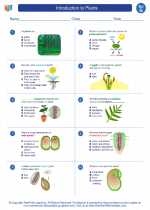
 Worksheet/Answer key
Worksheet/Answer key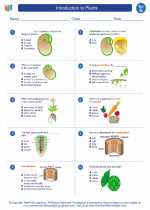
 Worksheet/Answer key
Worksheet/Answer key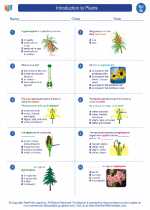
 Worksheet/Answer key
Worksheet/Answer key
 Vocabulary/Answer key
Vocabulary/Answer key
 Vocabulary/Answer key
Vocabulary/Answer key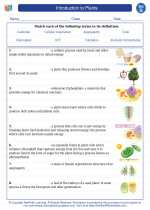
 Vocabulary/Answer key
Vocabulary/Answer key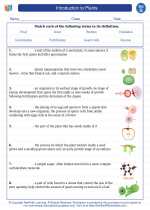
 Vocabulary/Answer key
Vocabulary/Answer key
 Vocabulary/Answer key
Vocabulary/Answer key
